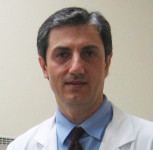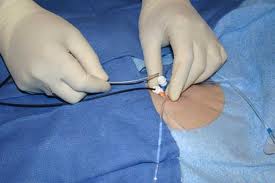Undergoing any medical procedure is a serious matter. Therefore, understanding all expectations, from the patient and the Electrophysiologist/Cardiologist is essential to make sure your procedure goes smoothly. Although each procedure varies, the core of each procedure has very similar expectations. Therefore, you will learn about what to expect prior to, during and after your electrophysiology cardiac procedure.
As a patient, your Cardiac Electrophysiologist will have many recommendations to follow before the procedure. Following these instructions is very important and will greatly reduce your chances of intra-test and post-test complications. For diagnostic and therapeutic (Ablation) procedures, there are many pre-test guidelines that MUST be followed. Procedures usually require patients to avoid eating or drinking anything other than the appropriate medication with small amount of water. Normally, a medical staff member from the Cardiac Electrophysiologist’s office will contact the patient to ensure all instructions are understood by answering any questions.
Before undergoing an electrophyisology cardiac procedure, there are extensive questions that must be completely and accurately answered. You will be asked what medications you take along with the dosage and frequency. Your next question will determine when and where your last electrophysiology (EPS) study has been performed. You will also be asked if you are a diabetic, what type and if you are currently taking insulin. Since contrast dyes are occasionally part of electrophysiology cardiac procedures, you will need to supply answers to questions related to allergies with animal proteins, natural and manmade materials (i.e. latex) and the contrast media itself. The last general question includes determining when and where you had the blood test and where your results can be found.
After you have completed all of the pre-procedure routines, it is important to understand what to expect during the procedure itself. Depending on your blood work history, you may need blood work on the day of your procedure. You should expect an intravenous (IV) catheter will be needed to deliver nutrients and/or required contrast dyes. If you become anxious or your body tenses up, medication may be required to obtain realistic results. Your blood oxygen levels will be measured during the entire procedure with an oxygen probe situated on your finger.
One should expect an extremely safe, efficient and highly accurate procedure regardless of whatever individual procedure you need. Whether you are in a private practice or a hospital setting, your procedure will occur in a electrophysiology (EP) laboratory. As the patient, you will be situated on a movable procedure table – this enables you to be moved around in a stationary position to perform your procedure as efficiently as possible. Once you are in the correct position, your body will have ECG electrode pads placed on your legs, chest and shoulders to continually monitor your vital signs. After ensuring the ECG electrodes are working and your other vitals are being continually monitored, you will be sedated.
The “heart” of the procedure is when the medical professionals, nurses and doctors exclusively, perform their specialist roles. Electrode catheters, normally inserted into the body through the groin or neck, are placed into the patient’s heart chambers. These wires will record the heart’s electrical pulses and be recorded on a computer.
After your Cardiac Electrophysiologist and support staff perform the specific procedure, there is a recovery and post-procedure process. Once all tests are performed and recorded, the IV and vital monitoring equipment is removed, you will be required to rest for a minimum of six hours. This time-frame will give your doctor and nurse a chance to make sure there are no complications. However, if complications including wetness, bleeding or warmth around the catheter site occur or you feel pain anywhere throughout your body, notify your nurse and doctor right away.
Heart Rhythm Specialists of South Florida
This practice has two locations:
South Miami Office
5975 Sunset Drive, Suite 802 in South Miami, FL 33143
Homestead Office
975 Baptist Way, Suite 202 in Homestead, FL 33033
Phone: (305) 663-3377
Fax: (305) 663-3097
Website: www.heartrhythmsfla1.com
Posted by Axiom Administrative Services
Phone/Fax: 800-888-6348



